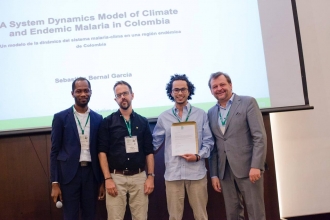
Day 2 of AM: Unexpected solution to sustainability challenges
Water use in agriculture, cooking fuel, development and health, weather effects (will it be too hot to work due to climate change?) are some of the important topics that were covered in the Tuesday…






